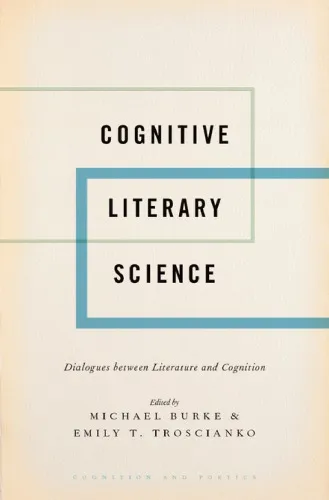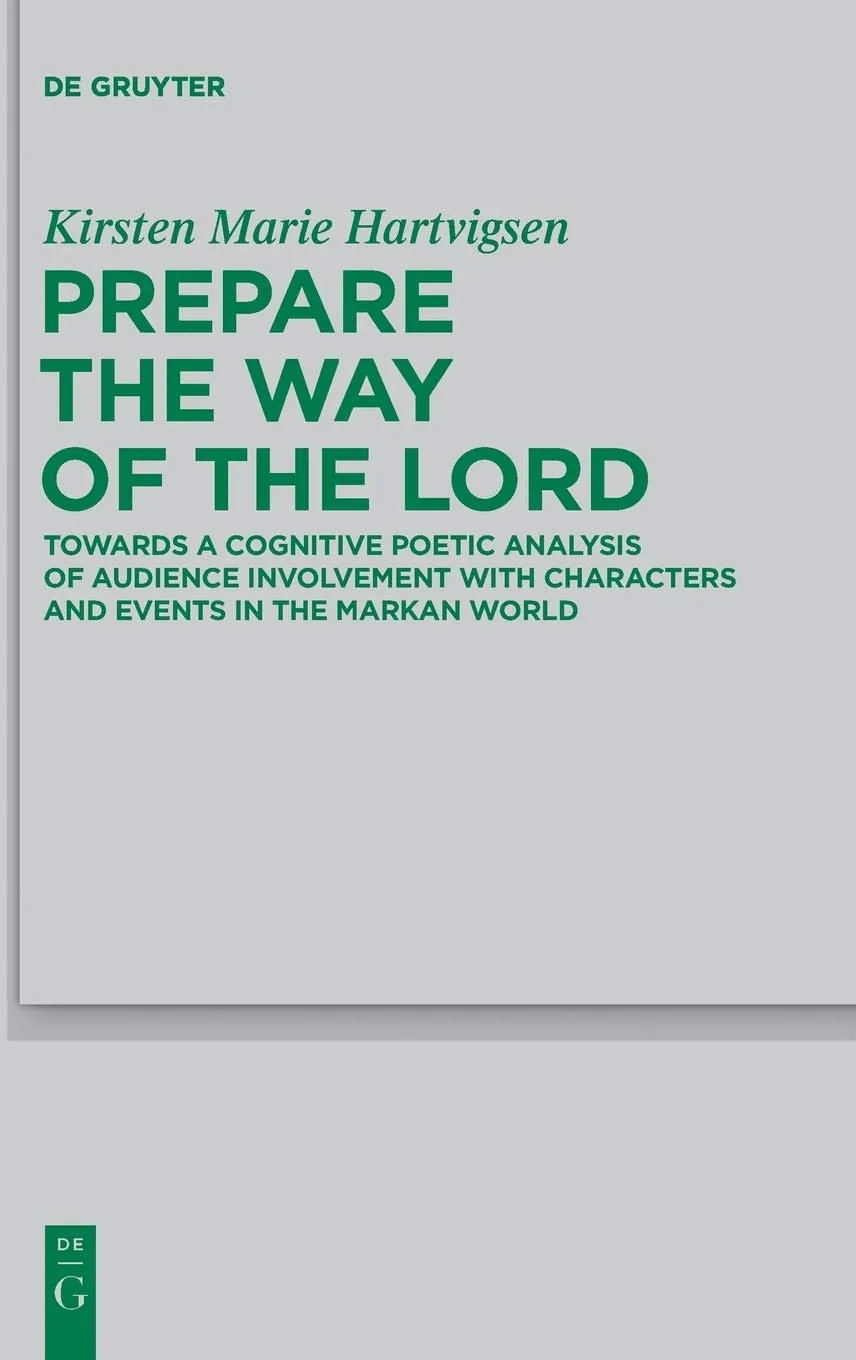Cognitive literary science : dialogues between literature and cognition
4.5
بر اساس نظر کاربران

شما میتونید سوالاتتون در باره کتاب رو از هوش مصنوعیش بعد از ورود بپرسید
هر دانلود یا پرسش از هوش مصنوعی 2 امتیاز لازم دارد، برای بدست آوردن امتیاز رایگان، به صفحه ی راهنمای امتیازات سر بزنید و یک سری کار ارزشمند انجام بدینکتاب های مرتبط:
معرفی جامع کتاب "Cognitive Literary Science: Dialogues Between Literature and Cognition"
کتاب Cognitive Literary Science: Dialogues Between Literature and Cognition اثری برجسته و پیشگامانه در حوزهای میانرشتهای است که به بررسی پیوندهای میان ادبیات و علوم شناختی میپردازد. این کتاب، به قلم مایکل برک و امیلی ترسچینکو نوشته شده و تلاش دارد تا به مخاطبان خود نشان دهد که چگونه نظریههای مدرن علوم شناختی میتوانند درک عمیقتری از متنهای ادبی، فرآیند خواندن و تجربه هنری ارائه دهند.
خلاصهای اجمالی از کتاب
این کتاب به عنوان تلفیقی از دیدگاههای نظری و پژوهشهای عملی، به موضوعات مختلفی میپردازد، از جمله چگونگی ورود علوم شناختی به حیطه نقد ادبی، تعامل میان ذهن خواننده و متن ادبی، و همچنین روشهایی که بتوان از مدلهای شناختی برای تحلیل آثار ادبی استفاده کرد. کتاب به ساختاری دیالوگمحور نوشته شده است و تلاش دارد بینشهای متنوع پژوهشگران و متخصصان دو حوزه ادبیات و علوم شناختی را گرد هم آورد.
هر بخش از کتاب به چرایی و چگونگی تأثیرگذاری نظریات علوم شناختی بر شیوه مطالعه و تفسیر ادبیات میپردازد، و مخاطبان خود را دعوت میکند تا در مورد روشهای جدید مطالعهی ذهن انسان از طریق ادبیات بیاندیشند.
نکات کلیدی کتاب
- تبیین پیوند میان علوم شناختی و مطالعات ادبی برای ترویج درک جدید از متون.
- تمرکز خاص بر فرآیندهای خوانش، از جمله جلب شدن توجه، تصور ذهنی، و همدلی خواننده با شخصیتها.
- تأکید بر اهمیت تجربه ادبی به عنوان یک فعالیت شناختی-احساسی.
- ارائه رویکردهای بینارشتهای و پیشنهاد ابزارها و روشهایی برای انطباق نظریات شناختی بر تحلیل متون ادبی.
جملات مشهور از کتاب
"Reading literature offers a cognitive experience unparalleled by other forms of engagement."
"The symbiosis between literature and cognition unearths truths about the human mind."
چرا این کتاب مهم است؟
اهمیت این کتاب در رویکرد غیرمعمول آن به ادبیات و ذهن انسان نهفته است. نویسندگان این اثر نه تنها متخصصان علوم شناختی و ادبیات هستند، بلکه پژوهش این کتاب به گونهای طراحی شده که مخاطبان متخصص و عمومی بتوانند از آن بهرهمند شوند. در عصری که علوم شناختی به سرعت در حال پیشرفت است، این کتاب پیشنهادی برای تلفیق بینشهای مدرن علوم شناختی با دنیای کهن و پیچیده ادبیات است. به همین دلیل، این کتاب برای دانشجویان، اساتید، و علاقهمندانی که به دنبال دیدگاههای تازه درباره رابطه ادبیات و علم هستند، ضروری است.
Cognitive Literary Science: Dialogues Between Literature and Cognition
Cognitive Literary Science: Dialogues Between Literature and Cognition is a groundbreaking and interdisciplinary work, bringing together two traditionally disparate fields—literary studies and cognitive sciences. Authored by Michael Burke and Emily Troscianko, this book delves into how cognitive science can provide fresh insights into the study of literature and how, conversely, literature can illuminate complex cognitive processes. The book serves as a dialogic bridge, inspiring readers to view human thought and storytelling as co-evolving phenomena crucial to our understanding of both art and mind.
Detailed Summary of the Book
At its core, Cognitive Literary Science seeks to answer fundamental questions about the connections between literature and human cognition. Drawing on interdisciplinary research, the authors explore how the cognitive mechanisms underlying perception, imagination, memory, and emotion intersect with literary theories and textual practices. The book reframes traditional literary studies by examining the neurological and psychological effects of reading and creating stories.
The text is divided into several essays and case studies contributed by experts in both fields, unveiling mutual insights that can only arise when the humanities and science engage in dialogue. The topics discussed in the book range from the role of mirror neurons in literary empathy to the way narrative structures influence our sense of self. The essays also explore specific genres, such as poetry and fiction, and analyze the cognitive mechanisms involved in reading humor or tragedy.
More broadly, the book discusses the transformative potential of including cognitive science in literary research and demonstrates how literature can further understanding of consciousness, emotion, and mental imagery. By using this interdisciplinary lens, Cognitive Literary Science fundamentally reimagines the way we see the relationship between storytelling and human thought processes.
Key Takeaways
- Literature not only reflects human cognition but also actively shapes it by engaging complex neural and psychological mechanisms.
- Cognitive literary science bridges two fields, providing a richer understanding of both storytelling and the mind.
- Neural phenomena such as empathy, memory, and imagination are deeply tied to how we interact with literary texts.
- Interdisciplinary approaches can revolutionize traditional literary analysis by integrating scientific insights.
- Literature plays a key role in shaping human emotions and identity through its influence on cognitive processes.
Famous Quotes from the Book
"The act of reading literature is a meeting place where cognition and creativity blend to forge human understanding."
"Understanding how we process narratives is not merely an academic exercise; it’s a study of what it means to be human."
"Stories shape minds, and minds shape stories—this synergy is the essence of cognitive literary science."
Why This Book Matters
Cognitive Literary Science occupies a unique space in modern scholarship by addressing the growing need for interdisciplinary approaches in academia. As the lines between the sciences and the humanities blur, the book sets an example of how cross-disciplinary collaboration can yield profound insights. The work is not only valuable for scholars of literature or cognition, but also for anyone interested in the broader question of how stories shape human minds and societies.
This book also opens up new pedagogical possibilities. Teachers, researchers, and writers can use its findings to foster more engaging learning environments, create more impactful narratives, and deepen their own understanding of how storytelling operates at a fundamental human level.
By presenting rigorous research in an accessible format, the book manages to appeal to both specialists and general readers. It fosters greater holistic comprehension of how storytelling is intricately linked to the way humans think, feel, and connect with one another. In today’s world, where understanding empathy and cultural narratives is more important than ever, Cognitive Literary Science offers an essential perspective.
دانلود رایگان مستقیم
برای دانلود رایگان این کتاب و هزاران کتاب دیگه همین حالا عضو بشین
برای خواندن این کتاب باید نرم افزار PDF Reader را دانلود کنید Foxit Reader
دسترسی به کتابها از طریق پلتفرمهای قانونی و کتابخانههای عمومی نه تنها از حقوق نویسندگان و ناشران حمایت میکند، بلکه به پایداری فرهنگ کتابخوانی نیز کمک میرساند. پیش از دانلود، لحظهای به بررسی این گزینهها فکر کنید.
این کتاب رو در پلتفرم های دیگه ببینید
WorldCat به شما کمک میکنه تا کتاب ها رو در کتابخانه های سراسر دنیا پیدا کنید
امتیازها، نظرات تخصصی و صحبت ها درباره کتاب را در Goodreads ببینید
کتابهای کمیاب یا دست دوم را در AbeBooks پیدا کنید و بخرید



